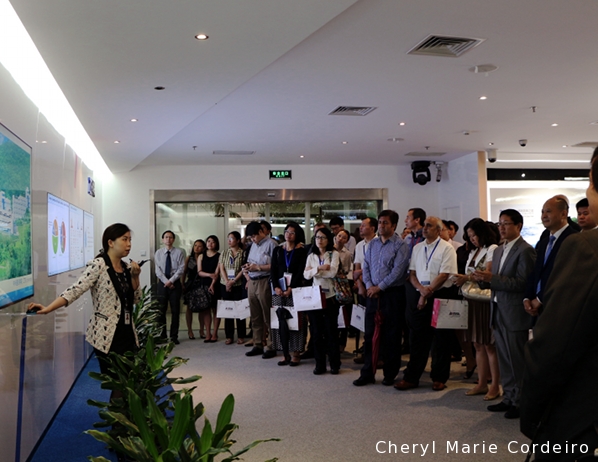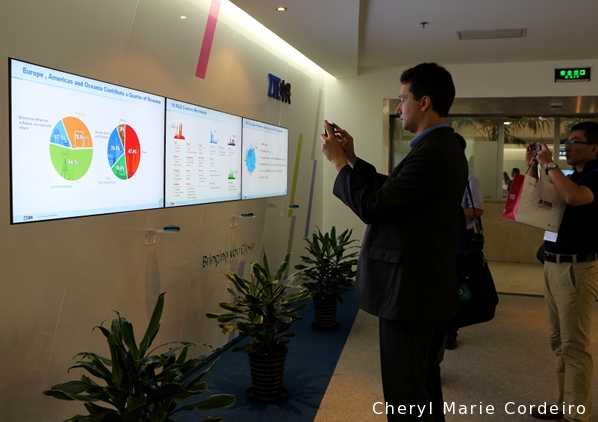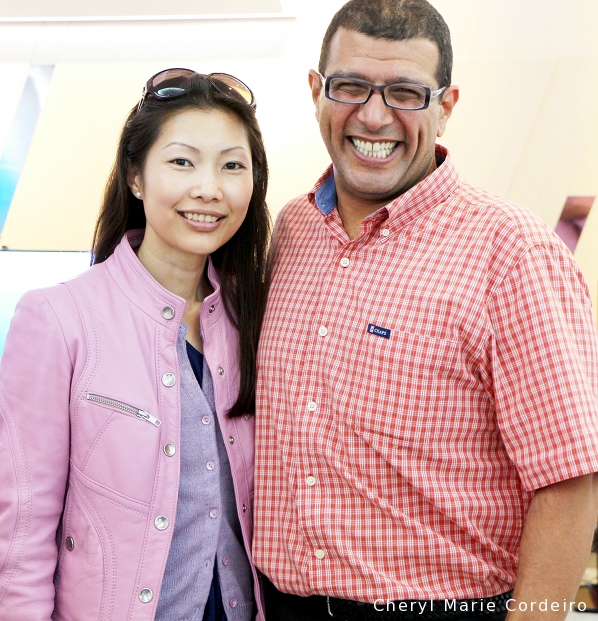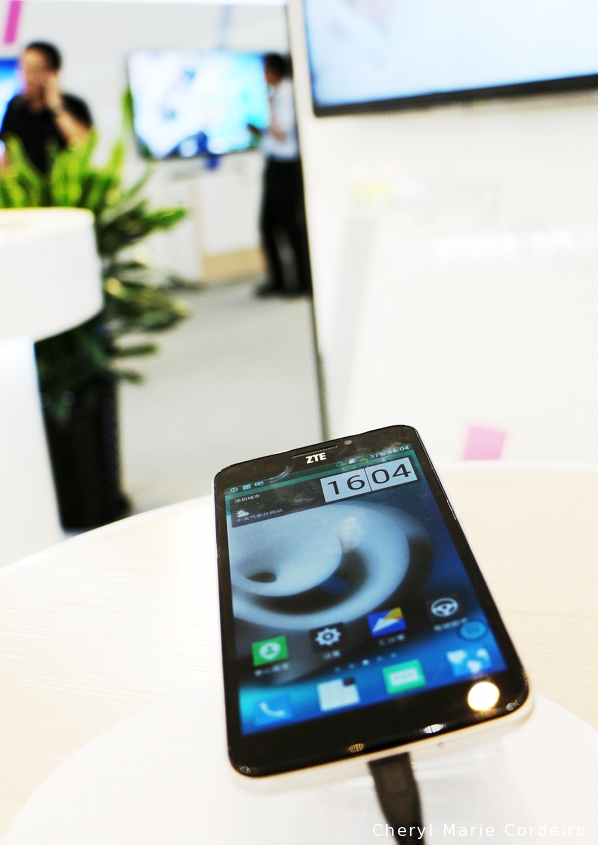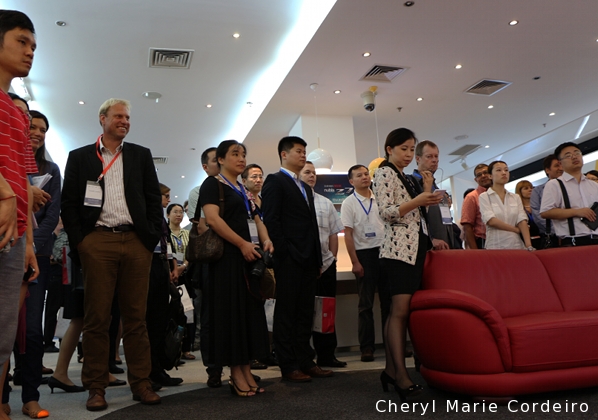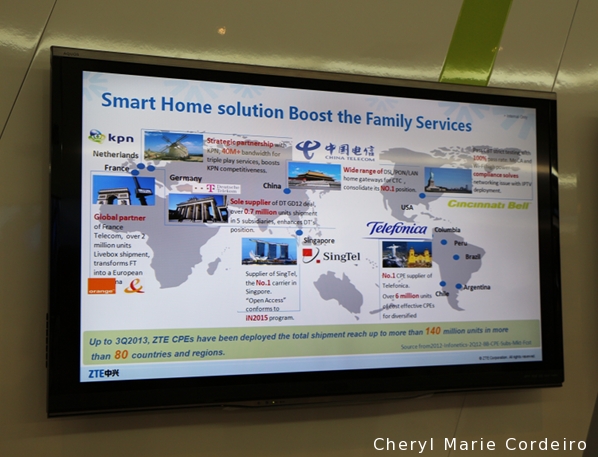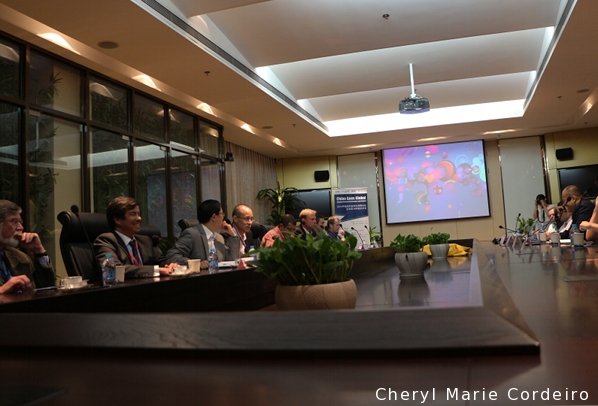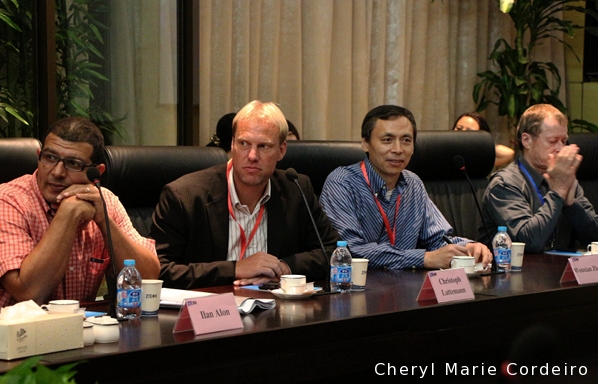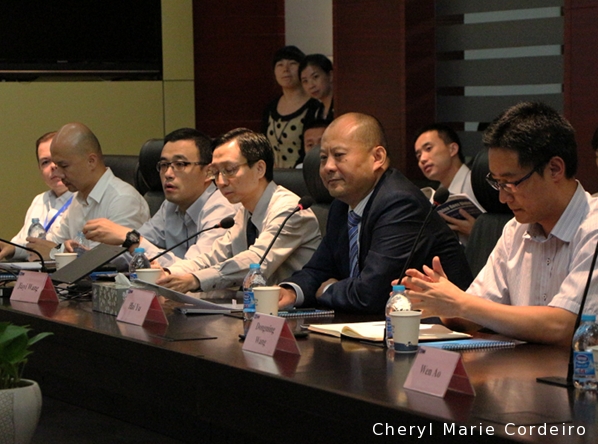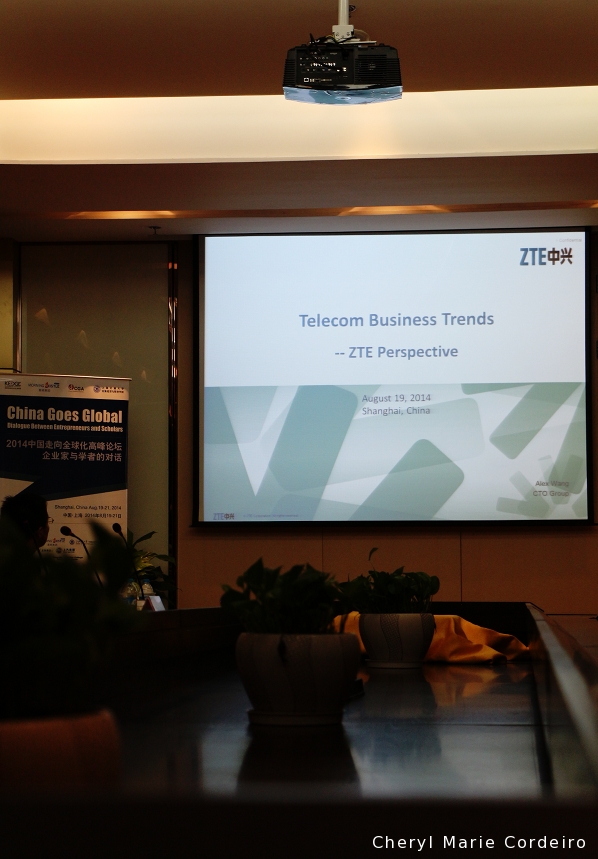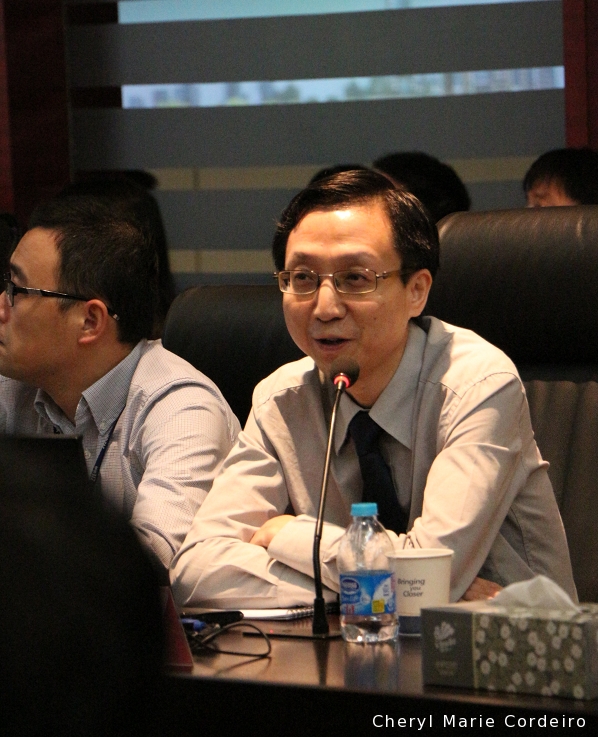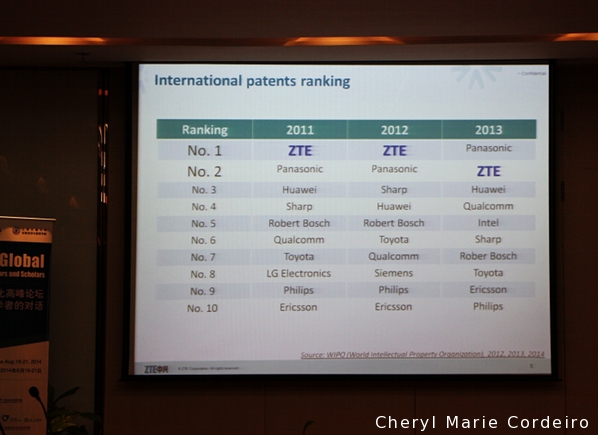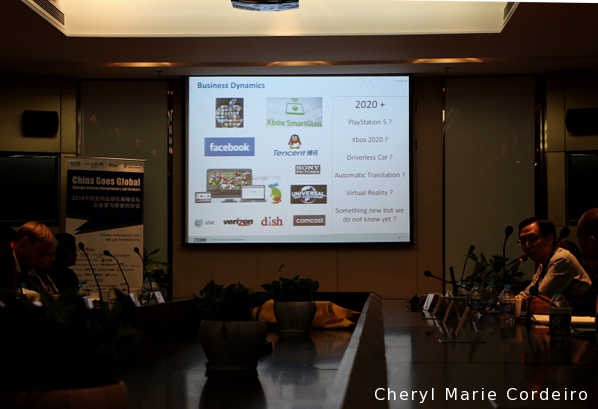ZTE Corporation, Shanghai, China.
Text & Photo © C Lattemann, JE Nilsson, CM Cordeiro 2014
Founded in 1985, ZTE Corporation is China’s first dual listed company. Listed on both the Shenzhen and Hong Kong stock exchanges, ZTE is a giant of a corporation hidden in plain view with its revenue in 2013 hitting a cool 12 billion USD. And it is growing rapidly yet. The telecommunications equipment and systems company that plays a principal role in supporting China’s massive constructions of 4G networks, surpasses the more renowned Europe based Siemens, Ericsson and Philips in patented innovations, reporting a sustained triple digit profit growth in its nine month forecast in 2014.
A brief introduction to ZTE’s core business and technology.
To much of the world, China continues to be seen as a country that lacks innovative capacity, where at best, what the country does is ’reverse engineer’. Increasingly with China’s multinationals, ZTE Corporation invests heavily in its own R&D with an expenditure of 7.4 bRMB in 2013. Being one of the world’s leading in patented technology, its partnership in R&D are international, with eighteen globally situated R&D centres, two of which are in Europe.
Despite its breakthroughs being second in the world ranking in 2013 for patent applications (it held first place in 2011 and 2012), a cutting question from the side of academia at this meeting was, ”What three things can ZTE do to improve innovation capacity?”. The answer came from Wang Dongming, CEO of ZTE-Cloud, who said ”Well, the first is, change your mindset.” And it was here that began a thought-provoking response to the work-life philosophies of ZTE in general that opened a window of insight into where China was headed in terms of organisational leadership, talent and resource management, that perhaps got some in the crowd wondering, exactly whose mindsets were better off being changed?
Dr. Cheryl Marie Cordeiro from the University of Gothenburg, and Prof. Ilan Alon, Executive Board member of the Chinese Globalization Association (CGA) that organised CGG2014. Prof. Alon is the Cornell Chair of International Business, Director of The China Center at Rollins College, and Visiting Scholar & Asia Fellow at Harvard University.
The China Goes Global (CGG) conference provides a platform for the exchange of ideas between academia and industry. Here, meeting in a boardroom at ZTE Corporation in Shanghai.
Executive Board members of the Chinese Globalisation Association (CGA), that includes (L-R) Prof. Ilan Alon, Prof. Christoph Lattemann and Prof. Zhang Wenxian.
The delegation from CGG2014 was met at ZTE Corporation by its Vice President Yu Hai (pictured centre), CTO Group Wang Jiayi, and ZTE-Cloud CEO Wang Dongming.
There were three broad segments to this exchange visit with ZTE, of a conversation between scholars and entrepreneurs, one of which was business trends in telecommunications and what were possible future technologies and consequent social scenarios.
ZTE CTO Group, Wang Jiayi.
ZTE CTO Group, Wang Jiayi led much of the exchange in discussion, where he spoke of how he saw international collaboration and global HR talent management as a necessity in order for ZTE to succeed as a global company.
In response to the question of what challenges ZTE faces as a global operator, he said ”Every country has its own rules and regulations in terms of telecommunications. You need to respect that, at the same time recognise that you will need to localise your operations if you want to operate globally. In every case, there is a bit of both, local and global.” A widely travelled individual, he continued to share his thoughts on how national and regional cultural differences were important when building technologies since people will tend to use technology differently, and had different levels of needs. His vision for the company is one that goes beyond 2020, where the year 2020 is deemed as too short a time away.
Discussed between CGG2014 and ZTE Corporation were projected telecommunications future beyond 2020, and some questions asked.
In general, the leadership philosophy at ZTE Corporation is one of ”give and take” and of weighing in the pros and cons of any new technology. Technology today has still some way to go in terms of co-existing with the concept of global sustainability, yet ”in any kind of business, you need a partnership to build the eco-concept” said Wang Dongming, CEO of ZTE-Cloud, and part of the reason why ZTE chose to engage in this open dialogue with academics in the field.
China offering the world’s largest home market, and ZTE already being a world leading company in digital communications infrastructure, the country together with its multinationals is proving itself to be in an excellent position to build a more efficient, greener infrastructure of tomorrow whilst bringing the world closer in interconnectivity.
A future social scenario envisioned was that, instead of having technological gadgets for its own sake fueling an unreflected consumption trend, people will make smarter use of technology, whether by individual choice as luxury of privacy, or by contextual circumstance of the need for individual time, allocated by choice.

